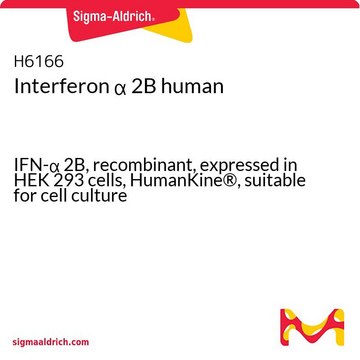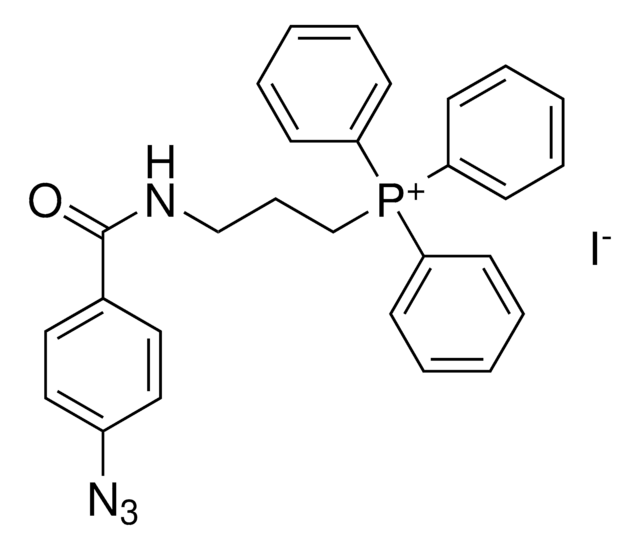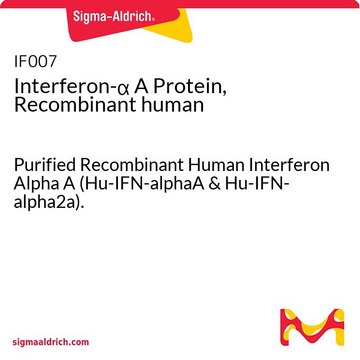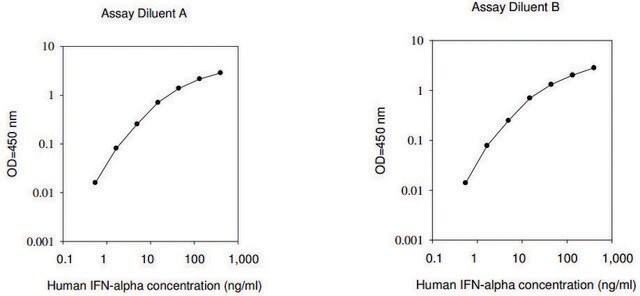推荐产品
生物源
human
重組細胞
expressed in E. coli
化驗
≥98% (HPLC)
≥98% (SDS-PAGE)
形狀
lyophilized
效力
≤0.01 ng/mL ED50
分子量
19.9 kDa
包裝
pkg of 100 μg
技術
cell culture | mammalian: suitable
雜質
<0.1 EU/μg endotoxin, tested
顏色
white to off-white
UniProt登錄號
運輸包裝
wet ice
儲存溫度
−20°C
基因資訊
human ... IFNW1(3467)
相关类别
一般說明
IFN-ω is a type I interferon, which can be induced by virus-infected leukocytes. Members of the type I interferon family, which includes IFN-α, IFN-β, and IFN-ω, signal through IFNAR-1/IFNAR-2 receptor complex, and exert antiviral and antiproliferative activities. IFN-ω exhibits about 75% sequence homology with IFN- α, and contains two conserved disulfide bonds, which are necessary for full biological activity. Recombinant Human IFN-ω is a 19.9 kDa protein consisting of 173 amino acid residues.
生化/生理作用
IFN-ω is a type I interferon, which can be induced by virus-infected leukocytes. Members of the type I interferon family, which includes IFN-α, IFN-β, and IFN-ω, signal through IFNAR-1/IFNAR-2 receptor complex, and exert antiviral and antiproliferative activities. IFN-ω exhibits about 75% sequence homology with IFN- α, and contains two conserved disulfide bonds, which are necessary for full biological activity. Recombinant Human IFN-ω is a 19.9 kDa protein consisting of 173 amino acid residues.
序列
MCDLPQNHGL LSRNTLVLLH QMRRISPFLC LKDRRDFRFP QEMVKGSQLQ KAHVMSVLHE MLQQIFSLFH TERSSAAWNM TLLDQLHTGL HQQLQHLETC LLQVVGEGES AGAISSPALT LRRYFQGIRV YLKEKKYSDC AWEVVRMEIM KSLFLSTNMQ ERLRSKDRDL GSS
外觀
Lyophilized with no additives.
重構
Centrifuge the vial prior to opening. Reconstitute in water to a concentration of 1.0 mg/ml. Do not vortex. This solution can be stored at 2-8°C for up to 1 week. For extended storage, it is recommended to further dilute in a buffer containing a carrier protein (example 0.1% BSA) and store in working aliquots at -20°C to -80°C.
儲存類別代碼
11 - Combustible Solids
水污染物質分類(WGK)
WGK 3
閃點(°F)
Not applicable
閃點(°C)
Not applicable
Hassan Abolhassani et al.
Journal of clinical immunology, 42(3), 471-483 (2022-01-30)
Inborn errors of immunity (IEI) and autoantibodies to type I interferons (IFNs) underlie critical COVID-19 pneumonia in at least 15% of the patients, while the causes of multisystem inflammatory syndrome in children (MIS-C) remain elusive. To detect causal genetic variants
Angelique Chauvineau-Grenier et al.
Research square (2021-10-07)
Recent studies reported the presence of pre-existing autoantibodies (auto-Abs) neutralizing type I interferons (IFNs) in at least 15% of patients with critical or severe COVID-19 pneumonia. In one study, these auto-Abs were found in almost 20% of deceased patients across
Hassan Abolhassani et al.
Journal of clinical immunology (2021-10-24)
Coronavirus disease 2019 (COVID-19) exhibits a wide spectrum of clinical manifestations, ranging from asymptomatic to critical conditions. Understanding the mechanism underlying life-threatening COVID-19 is instrumental for disease prevention and treatment in individuals with a high risk. We aimed to identify
Nikaïa Smith et al.
Nature communications, 13(1), 7254-7254 (2022-11-27)
Host immunity to infection with SARS-CoV-2 is highly variable, dictating diverse clinical outcomes ranging from asymptomatic to severe disease and death. We previously reported reduced type I interferon in severe COVID-19 patients preceded clinical worsening. Further studies identified genetic mutations
Romain Arrestier et al.
Annals of intensive care, 12(1), 121-121 (2023-01-01)
Auto-antibodies (auto-Abs) neutralizing type I interferons (IFN) have been found in about 15% of critical cases COVID-19 pneumonia and less than 1% of mild or asymptomatic cases. Determining whether auto-Abs influence presentation and outcome of critically ill COVID-19 patients could
我们的科学家团队拥有各种研究领域经验,包括生命科学、材料科学、化学合成、色谱、分析及许多其他领域.
联系技术服务部门







